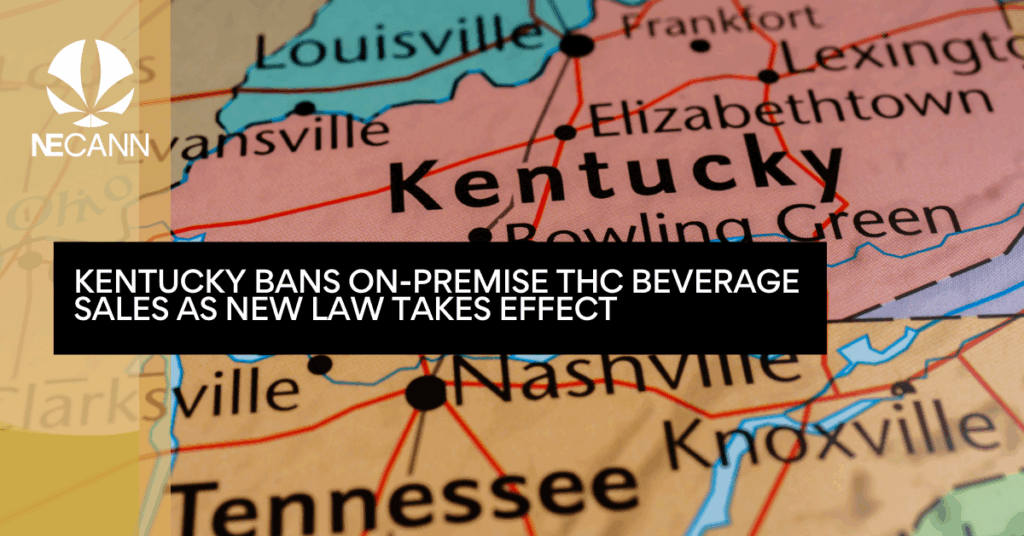THC-infused beverages can no longer be sold by the drink in Kentucky, as Senate Bill 202 officially takes effect. The new law now limits sales to liquor stores and online platforms only, creating a major shift in how cannabis-infused beverages reach consumers across the state.
The bill, signed into law in March, is already drawing criticism from local cannabis entrepreneurs who say the legislation will hit their bottom line hard.
Jim Higdon, co-founder of Cornbread Hemp, told WLKY News that on-site beverage sales previously accounted for 30% of his company’s total beverage sales in Kentucky.
“On-premise sales account for about 30% of beverage sales in Kentucky. So, you know, that’s a hit we’re going to take.” — Jim Higdon, Cornbread Hemp
What’s in Senate Bill 202?
The new law doesn’t ban THC-infused beverages entirely—it simply reshapes where and how they can be sold:
- THC drinks can now only be sold through liquor stores or online.
- On-premise consumption—such as bars, restaurants, and cafes—is prohibited.
- Each serving is capped at 5 milligrams of THC, aligning with what lawmakers say are safety and public health priorities.
The Kentucky Department of Alcoholic Beverage Control and the malt beverage administrator will now oversee all licensing, distribution, and retail activity related to cannabis beverages. The law brings cannabis drinks under the same oversight as alcohol, effectively blurring the lines between intoxicant regulation frameworks.
New Licensing Fees
SB202 also introduces a series of annual fees for businesses involved in cannabis beverage sales:
- $500 for cannabis-infused beverage retailers
- $520 for beverage distributors
- $100 for supplemental distributors
The structure adds a new cost barrier for small businesses looking to stay compliant while navigating the state’s emerging THC beverage industry.
Event Sales Allowed—For Now
While on-premise sales are off the table, the bill includes a temporary carve-out:
THC beverages may still be sold at fairs, festivals, and similar public events—but only in areas that are already approved to serve alcohol and only until January 1, 2026.
This allows some flexibility for brands to continue reaching customers in-person at high-traffic gatherings, though the long-term future of event-based sales remains uncertain.
Industry Response and Looking Ahead
Kentucky’s shift away from on-premise sales reflects a growing national debate over how THC-infused beverages should be regulated. With cannabis legalization evolving rapidly across the U.S., states are increasingly applying alcohol-style regulations to cannabis products, raising concerns about accessibility and industry stability.
For companies like Cornbread Hemp and other local producers, the path forward may require rapid adaptation, including ramping up retail distribution partnerships and strengthening online direct-to-consumer channels.
Want more cannabis industry updates like this?
👉 Subscribe to NECANN for breaking news, business trends, and the latest on cannabis legislation across the country.



